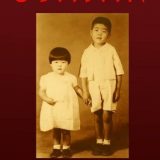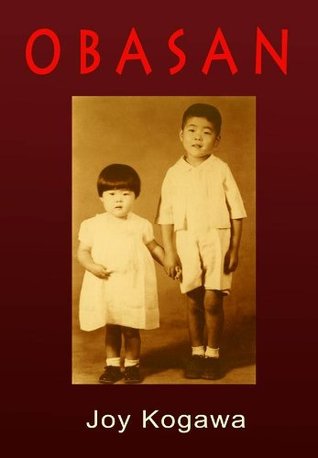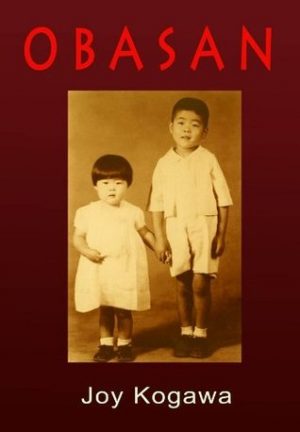Obasan – Joy Kogawa – 1981
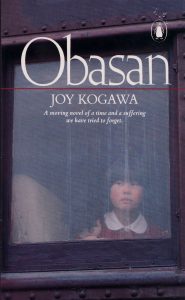
Reviewed by: Dave Date: 25 January 2002
In the introduction, the author states that “Although this novel is based on historical events, and many of the persons named are real, most of the characters are fictional.” Without this explanation I would have never categorized Obasan as a novel. As I read it, I rarely felt as though I was reading a novel… I felt like I was reading a memoir. That is not a negative thing, (I love memoirs) but so much of what is in Obasan seems like… non-fiction. I wish it had just come right out with it and said… THIS IS A MEMOIR. Skip the fiction altogether. It’s confusing… did this or did this NOT actually happen to the author? It simply does not read like a novel. And perhaps that is a credit to the author’s skill. I don’t know. But if, for instance, the many dream sequences are “fictional”, then I conclude that Kogawa’s imagination and daring lost me more than once… Here is one such scene (by the way, there are no typos in this example): “I am in a hospital. Father is in a hospital. A chicken is in a hospital. Father is a chicken is a dream that I am in a hospital where my neck and chin are covered with a thick red stubble of hair and I am reading the table of contents of a book that has no contents pesquisar aqui.” These type of dream sequences (and there’s many of them) seem nonsensical and don’t add much to the overall “story” of Obasan… but if they are presented as “memoir” I can tolerate them much better. In other words, many moments, many chapters, I felt were not fictionally justified… they went nowhere! There seemed no purpose in making them up. At the end of the book I wondered why I had to know all that stuff about Old Man Gower next door UNLESS THIS IS A MEMOIR.
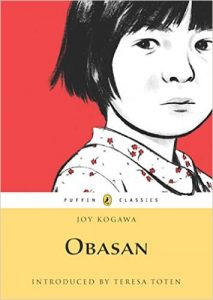 But Obasan is important for its historical significance. I am shamed to say that as a Canadian, I was not even aware of the persecution of the Japanese that took place in this country during World War II. Obasan is an appalling record of these terrible injustices. With the excuse that Canadians of Japanese origin represented a threat to national security, the Government of Canada passed a series of racially discriminatory (and racially motivated) laws and policies. In 1941, thousands were expelled from the province of B.C. (especially the coastal regions) and pushed inland and into Alberta for “resettlement”. Property was seized and disposed of at the whim of the Government. Public pressure increased as the War went on, and by 1945, families that were already fractured and separated were permanently destroyed. A choice to go east of the Rockies or to Japan was presented without time for consultation with separated parents and children. Failure to make a swift choice was labelled as “non-cooperation”. Obasan is the story of one such family that endured great hardships during this period. It begins in 1972, when the main character Naomi Nakane (now a schoolteacher) receives a phone call that her Uncle has passed away. She goes to comfort her grieving Aunt Obasan, and discovers a package that has recently arrived from another Aunt (Emily). Aunt Emily represents the uprooting of the past… she seeks to make sense of it all, and her package contains important documents and letters that Naomi would prefer to leave in the past. Soon Aunt Emily herself arrives at the house, and as she begins her uprooting, Naomi says with a tired sigh, “Life is so short, the past so long. Shouldn’t we turn the page and move on?” “The past is the future,” Aunt Emily replies.
But Obasan is important for its historical significance. I am shamed to say that as a Canadian, I was not even aware of the persecution of the Japanese that took place in this country during World War II. Obasan is an appalling record of these terrible injustices. With the excuse that Canadians of Japanese origin represented a threat to national security, the Government of Canada passed a series of racially discriminatory (and racially motivated) laws and policies. In 1941, thousands were expelled from the province of B.C. (especially the coastal regions) and pushed inland and into Alberta for “resettlement”. Property was seized and disposed of at the whim of the Government. Public pressure increased as the War went on, and by 1945, families that were already fractured and separated were permanently destroyed. A choice to go east of the Rockies or to Japan was presented without time for consultation with separated parents and children. Failure to make a swift choice was labelled as “non-cooperation”. Obasan is the story of one such family that endured great hardships during this period. It begins in 1972, when the main character Naomi Nakane (now a schoolteacher) receives a phone call that her Uncle has passed away. She goes to comfort her grieving Aunt Obasan, and discovers a package that has recently arrived from another Aunt (Emily). Aunt Emily represents the uprooting of the past… she seeks to make sense of it all, and her package contains important documents and letters that Naomi would prefer to leave in the past. Soon Aunt Emily herself arrives at the house, and as she begins her uprooting, Naomi says with a tired sigh, “Life is so short, the past so long. Shouldn’t we turn the page and move on?” “The past is the future,” Aunt Emily replies.
And so begins the story of Naomi’s life… through her own recollections, through dream sequences, Aunt Emily’s journal, newspaper clippings, government documents, letters… the story is told. Exactly what happened to Naomi’s mother and father?
The story returns in the end to 1972, where the adult Naomi reflects on how they were treated as a family and as a people. “The Government makes paper airplanes out of our lives and files us out the windows.” It is reprehensible, a terrible reproach, that one person summarizes this period in Canadian history in such a way… and nothing short of a tragedy that thousands do!


